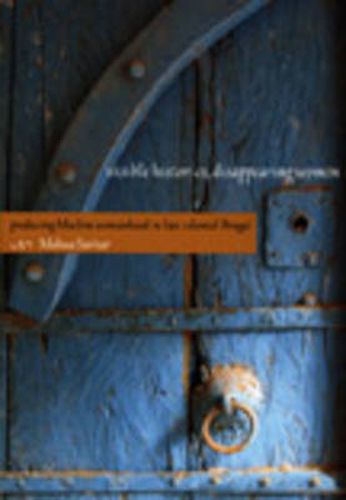Readings Newsletter
Become a Readings Member to make your shopping experience even easier.
Sign in or sign up for free!
You’re not far away from qualifying for FREE standard shipping within Australia
You’ve qualified for FREE standard shipping within Australia
The cart is loading…






In this important contribution to South Asian historiography, Mahua Sarkar examines how Muslim women came to represented as invisible, backward, and victimized in the written history of late colonial Bengal. While feminist scholars of colonial India have recently begun recuperating the voices of marginalized women, Sarkar focuses her attention on how and why Bengali Muslim women came to be marginalized in the first place. Ultimately, she argues that their near-invisibility, except as victims, in normative histories of India was central to the consolidation of national identity in the colonial period and beyond. She also contends that the politics of liberal feminism and the nation-centeredness of history as a discipline have helped to produce Muslim women as the oppressed, mute other of the modern Indian subject. Sarkar surveys recent feminist and postcolonial scholarship to assess when and where Muslim women enter, or are written into, the history of colonial Bengal. Drawing on extensive archival research, she follows Muslim women as they appear and disappear in colonial, Hindu nationalist, and liberal Muslim writing about late colonial Bengal.She interviewed Muslim women who lived in Calcutta or Dhaka in the first half of the twentieth century, and their oral accounts provide a rich source of information about the social fabric of urban Bengal during the final years of colonial rule. Sarkar concludes with an exploration of the complex links between past constructions of Bengali Muslim women and the ways that they are represented in academic and popular discourses in India today. She reflects too on the relation between the representational violence of the past and the very real corporeal violence against Muslim women in contemporary India.
$9.00 standard shipping within Australia
FREE standard shipping within Australia for orders over $100.00
Express & International shipping calculated at checkout
In this important contribution to South Asian historiography, Mahua Sarkar examines how Muslim women came to represented as invisible, backward, and victimized in the written history of late colonial Bengal. While feminist scholars of colonial India have recently begun recuperating the voices of marginalized women, Sarkar focuses her attention on how and why Bengali Muslim women came to be marginalized in the first place. Ultimately, she argues that their near-invisibility, except as victims, in normative histories of India was central to the consolidation of national identity in the colonial period and beyond. She also contends that the politics of liberal feminism and the nation-centeredness of history as a discipline have helped to produce Muslim women as the oppressed, mute other of the modern Indian subject. Sarkar surveys recent feminist and postcolonial scholarship to assess when and where Muslim women enter, or are written into, the history of colonial Bengal. Drawing on extensive archival research, she follows Muslim women as they appear and disappear in colonial, Hindu nationalist, and liberal Muslim writing about late colonial Bengal.She interviewed Muslim women who lived in Calcutta or Dhaka in the first half of the twentieth century, and their oral accounts provide a rich source of information about the social fabric of urban Bengal during the final years of colonial rule. Sarkar concludes with an exploration of the complex links between past constructions of Bengali Muslim women and the ways that they are represented in academic and popular discourses in India today. She reflects too on the relation between the representational violence of the past and the very real corporeal violence against Muslim women in contemporary India.